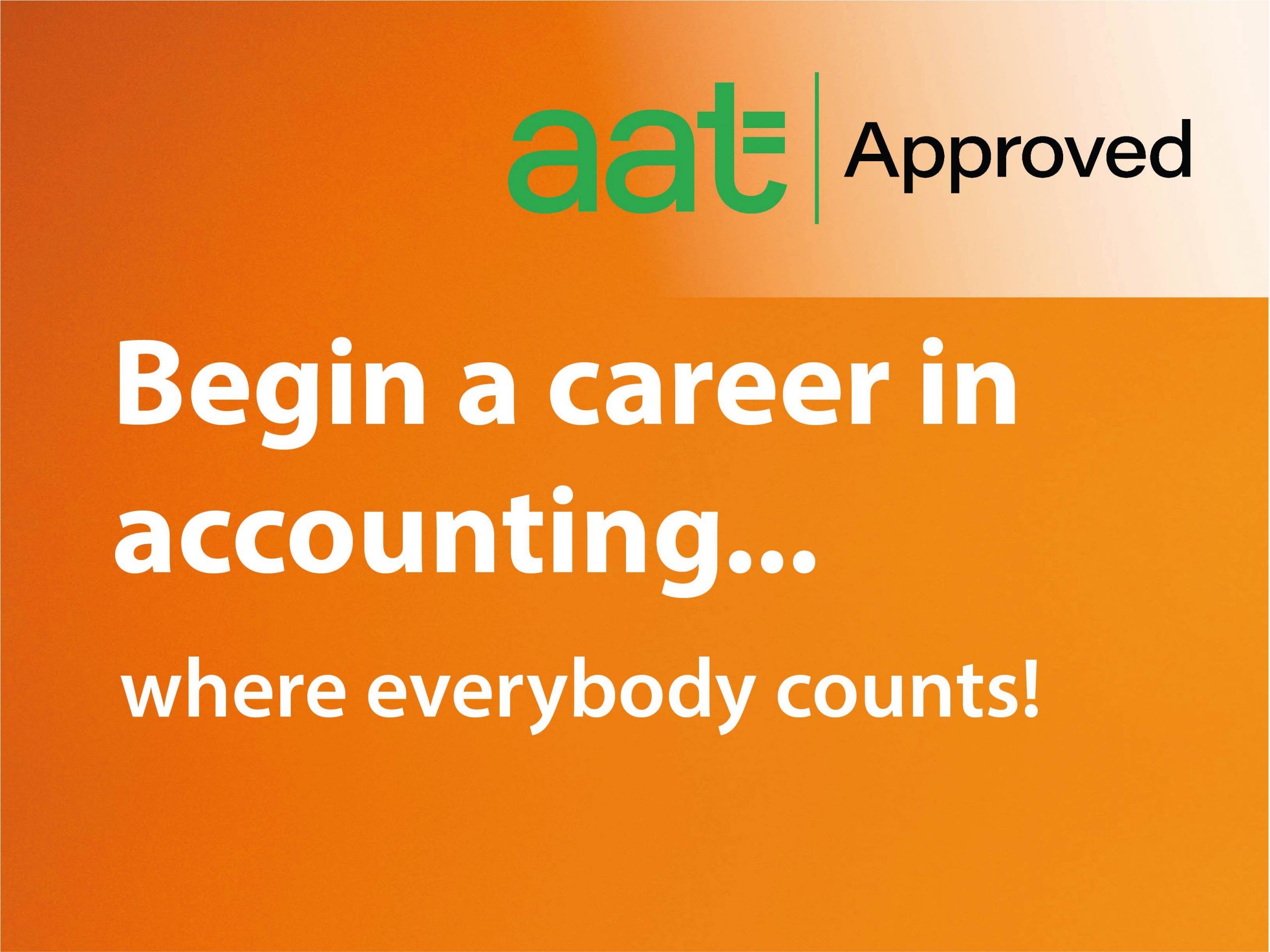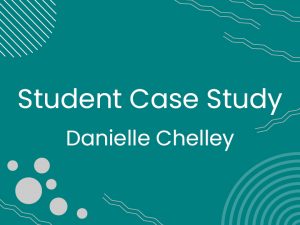AAT Level 4 Diploma in Professional Accounting
Subject: Accounting & Bookkeeping
Awarded by the Association of Accounting Technicians (AAT), the AAT Level 4 Diploma in Professional Accounting is the advanced and final level of the internationally recognised AAT qualification.
This course is ideal if you have completed the AAT Level 3 Diploma in Accounting. You will learn a range of higher level accounting tasks including drafting financial statements, managing budgets, evaluating financial performance and preparing personal and business tax returns.
The AAT accounting qualification is respected by employers around the world, providing you with excellent career prospects. Once you complete this qualification you will be a fully AAT qualified accounting technician and enjoy elevated professional status, increasing your career and salary prospects.
There will also be the option of starting your own business by becoming an AAT Member in Practice and if you want to continue to study towards professional accountancy qualifications, you will gain generous study exemptions from UK chartered, certified and management accountancy bodies.
As a student on this programme you will need to register as a student member with the AAT. You can register online at www.aat.org.uk. Your AAT membership will give you access to extensive e-learning resources, forums, networking opportunities and practice assessments.
Key Facts
- Attendance: Half-day/evening classes or online learning with tutor support.
- Duration: 18 months.
- Next start dates: Enrolling now, please contact us for details.
- Location: Classroom lessons are held in Godmanchester, near Huntingdon.
Course delivery details:
| Location | Attendance Options | Day | Time |
| Godmanchester (Near Huntingdon) | Evening
Half day release |
Mondays
Tuesdays |
5.30pm-8.30pm
9.15am-1pm |
| Online Learning with tutor support | No college attendance required, start anytime | n/a | n/a |
Entry Requirements
Enrolment on this accounting course requires competency in complex double-entry bookkeeping and the AAT Level 3 Diploma in Accounting to have been previously completed.
Please note: As our courses include online learning components, students are required to have access to a PC or laptop with a reliable internet connection.
Course Content
This accounting qualification has two study method options: classroom lessons or online learning, both with regular tutorial support. In addition to your classroom/online learning, students will be expected to study for an additional eight hours per week.
The following three mandatory units will be studied:
Drafting and Interpreting Financial Statements
This unit provides students with the skills and knowledge for drafting the financial statements of single limited companies and consolidated financial statements for groups of companies. Students will have a proficient level of knowledge and understanding of international accounting standards, which will then be applied when drafting the financial statements. Students will also have a sound appreciation of the regulatory and conceptual frameworks that underpin the preparation of limited company financial statements.
- The external reporting environment for limited companies and groups which need to publish accounts.
- Principles of consolidated accounts, and analysis and interpretation of financial statements.
- Preparing a range of financial statements and identifying an organisation’s financial position.
Applied Management Accounting
This unit focusses on the three fundamental areas of management accounting: planning, control and decision making. This unit will allow students to understand how the budgetary process is undertaken. Students will be able to construct budgets and then identify and report both on areas of success and on areas that should be of concern to key stakeholders. Students will also gain the skills required to critically evaluate organisational performance. Students will also gain an appreciation of the methods used to deal with the issues surrounding both short-term and long-term decision making.
- How and why budgets are prepared, helping you prepare revenue forecasts and a range of budgets for different circumstances.
- Understanding budgetary procedure to aid organisational planning and control.
- Preparing budgets, analysing variances and making recommendations for improving organisational performance.
- Managing and measuring financial performance; the range of techniques for analysing information on expenditure and making judgements to support decision making, planning and control by managers.
- Collecting and analysing information, monitoring performance and presenting reports to management.
Internal Accounting Systems and Controls
The unit teaches student to consider the role and responsibilities of the accounting function, including the needs of key stakeholders who use financial reports to make decisions. Students will review accounting systems to identify weaknesses and will make recommendations to mitigate identified weaknesses in future operations. Students will apply several analytical methods to evaluate the implications of any changes to operating procedures. Technology is changing the way that accountancy information is processed, and this unit requires knowledge of the fundamental principles of data analytics and artificial intelligence (AI), which may be used as an alternative way to gather and analyse information. Cloud accounting is changing the way accountants work and visualisation, including dashboards, is increasingly used to present information in a way that is easier for stakeholders to understand. Data security and breaches are regularly reported in the press, and therefore it is imperative that students are aware of the importance of keeping all data secure and consider the confidential nature of the data that they will be processing as part of their everyday role.
- Identifying the role of internal control within an organisation and recognising different approaches to making informed recommendations on how to implement or improve systems.
- Communicating this to management and identifying the impact that changes would have on the system and its users.
Optional Units
The following optional units will then be selected:
Personal Tax
This unit provides students with the fundamental knowledge of the three most common taxes that affect taxpayers in the United Kingdom (UK): income tax, capital gains tax and inheritance tax. With this knowledge, students will be equipped to prepare not only the computational aspects where appropriate of these taxes, but also appreciate how taxpayers can legally minimise their overall taxation liability. Students will also study capital gains tax and inheritance tax. The fundamental principles of these taxes will be covered so that students can appreciate how they may affect UK taxpayers.
- How Income Tax and Capital Gains Tax is applied to income.
- Calculating Income Tax liabilities and income from all sources.
- Applying relevant allowances, deductions and reliefs to prepare accurate Income Tax computations.
Business Tax
This unit introduces students to UK taxation relevant to businesses. Students will understand how to compute business taxes for sole traders, partnerships and limited companies. They will also be able to identify tax planning opportunities while understanding the importance of maintaining ethical standards. Students will gain the skills required to apply the tax treatment of capital expenditure and the adjustment of accounting profits for tax purposes. Students will allocate profits to tax years for ongoing businesses as well as in opening and closing years. In addition, students will allocate profits between partners in a partnership and will calculate National Insurance (NI) contributions for the self-employed, advising clients on the tax implications of making losses.
- Preparing tax returns for sole traders, partnerships and incorporated businesses.
- Recognise trading profits, make adjustments and apply current relevant legislation.
Assessment
Computer based exams or projects will be undertaken. As we are an AAT accredited exam centre these exams can be taken at College without the need to travel to an external exam centre.
Course Fees
£3,088
It is possible to take individual units at a cost of £700 per unit plus any relevant awarding body fees.
Awarding Body Fees*:
Payment for AAT membership, exam fees (approximately £564*) and textbooks (approximately £33 per unit) will also be required.
* these are payable by all students or employers and are recharged at cost and subject to change.
Course fees must be paid in full before the beginning of the course. A loan scheme is available, details can be found below.
CAW Loans2Learn
The CAW Loans2Learn scheme is a personal loan that can help you to spread the cost of the course into manageable payments over a period of up to 5 years. The loan can be used to fully or partially cover the course fees (but does not cover any awarding body fees, such as enrolment and examination fees). More information can be found here.
 LOAN CALCULATOR
LOAN CALCULATOR
The current rate of interest for a CAW Loans2Learn is 9%. Click on the calculator icon to calculate your monthly repayment options based on different repayment term lengths.
Sources of financial help can be found on our student finance page. Before making any financial decision it is recommended that you seek advice from an independent source, for example the Money Advice Service.
If you have not achieved your qualification by the planned end date detailed in your individual learning plan, continued support and course access is available by paying monthly direct debit payments, or applying for a supplementary or increased loan, until certification is achieved.
These are current figures and may be subject to change. The differences in course fees reflect the level of funding that is available as a result of government policies and priorities. These may be as a result of age, employment status, previous education achievements, or location for example, and are outside the control of CAW Business School (The College of Animal Welfare Ltd).
What Next?
After completing the AAT Level 4 Diploma in Professional Accounting qualification, you will be able to apply to become an AAT full member and use the letters MAAT after your name. You’ll enjoy elevated professional credibility and status, increasing your opportunities for career progression and fulfilling your salary expectations.
The Level 4 AAT qualification will allow you to work in a variety of roles, such as:
- Senior Finance Officer
- Assistant Financial Accountant
- Payroll Manager
Become self-employed
You may choose to start up your own business. As an AAT member in practice (MIP) you can offer accountancy, taxation or related consultancy services to the public in the UK or Channel Islands. More information on this can be found on the AAT website.
Become a chartered accountant
You may decide to continue your studies by becoming a chartered accountant. All the UK chartered and certified accountancy bodies recognise the AAT Accounting qualification and will give you exemptions from certain modules. Read more.
Testimonials
Click for more
Click for more
What our AAT students say…
We asked our students what aspects of their AAT course they have most enjoyed. Here are some of the things they had to say!
- “Learning new skills, socialising with people within a similar field of work and with similar goals”
- “I have really enjoyed the classes and follow up activities for homework. The resources are very good”
- “Manageable sections. Broken down so not overloaded with information”
- “Good tutor making a hard subject easy to understand with good examples”
Full Course Brochure
Enter your details to download the full course brochure. We'll email you with information about the course.
You can unsubscribe at any time. We respect your privacy and handle your data with care. Please see our privacy policy.



